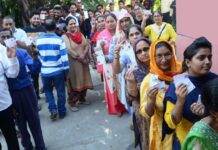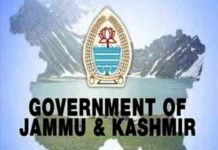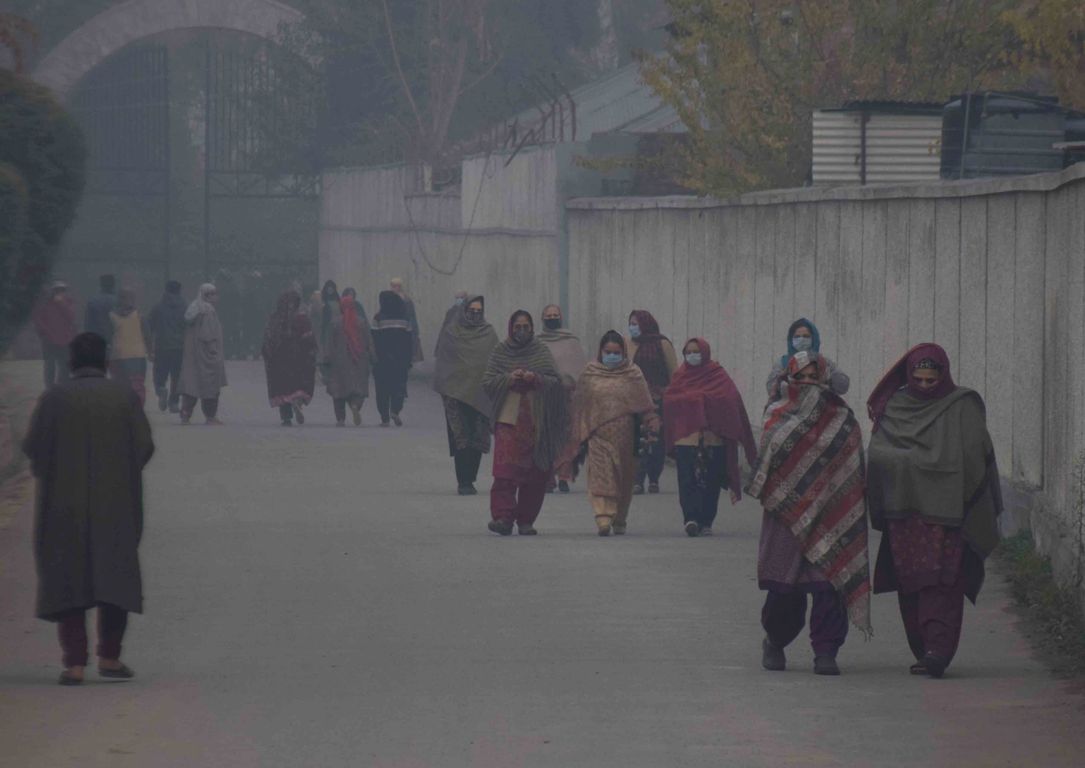Rakshanda Ali
There is always a thin line between naming warriors and collaborators. And it is difficult to judge—as who is who, in a battle that is fought covertly by ‘anti’ against ‘pro’ or vice versa. Kashmir has a distinct feature for acquiring names; sometimes, due to beauty or conflict. It is a melancholy of sorts—how, ‘the paradise on earth’ is ‘the most dangerous place’, at the same time!
Heavens will be mourning—that the paradise is the nuclear flash point and a ticking bomb! Nobody seems interested in the Himalayan conflict; rather, it is the South Asia’s peace that is under threat. No one stands for ‘Heaven’s sake’!
The tectonic plates of interests have already swallowed generation of humans. Life is a dangerous activity in this valley of death. Death is the ultimate reality of life cycle—but in this hamlet, people, who are alive, are only so, because someone in charge has not decided yet to pull the trigger on them. Once he finds out or thinks or may think of any suspicious movement, the barrage of bullets will pierce the pumping heart, all four chambers wide open!
War is war. On both side of line are men who choose between the two; armed to teeth, and prepared to march into fray. Do or die is the shapath for all involved.
Covert wars are the most dangerous wars. In terrorism—theirs and ours; Eqbal Ahmad asks a question: ‘why do they do it? What makes terrorists tick?’ In one of the answers, he says ‘another factor is a sense of betrayal…!’ And whoever is smelled of betraying or ‘working against the interest of people’ is landed in a grey zone. (Eqbal Ahmad: an anti-war activist, political scientist, writer and journalist of Pakistan, was strongly critical of the Middle East strategy of the United States as well as what he saw as the “twin curse” of nationalism and religious fanaticism in such countries as Pakistan.)
There is no ‘no man’s land’ here, only graveyards! A person may never know that he is the collaborator until some unidentified shot hits him. Who is this ‘unidentified’ person?—that surface, like UAV’s (unmanned aerial vehicle), hit ‘aliens’ and disappear. It is a blue science, or, black hole of shadow—men, whose affiliations are unknown.
Yasir Arafat was hit by the same shadow force—an example: the recent killing of a teacher in south Kashmir, who happened to be a polling officer unfortunately. ‘We are in a time much worse than the cold war,’ Eqbal Ahmad said. And this valley is the hottest place in this cold-blooded game of throne.
Publicity, provocation, paralysis and panic have been the most sought out objectives of terror activities. As David Charles Rapoport, an expert in terrorism, says, “terror publicises grievances, which, the terrorist believes would have been unnoticed without his act…”
But who is the terrorist? An act of outrage can be used to make the collective conscience believe that the exodus is the greatest grievance… Or the enemy is trying to create disturbances and states are so cunning that they manufacture events to justify their heavy metal coercive approach.
David says, to speak of systematic use of terror for publicity and provocation purpose is to presume, “of course, that the antagonist in some critical sense shares a moral community.”
The public statements by the terrorists always justify atrocities in defensive terms, he says, as necessary specific responses to particular alleged atrocities of the enemy. Appeals are made to the same set of potential supporters, and victories and defeats depend on how well rebels can turn government’s moral restraint or strength into political weaknesses, David asserts: “The restraint of government, on the other hand, provides immunities for the terrorist, but if government abandons restraint, it suffers a different kind of disadvantages in the eyes of interested parties, for the atrocities of the strong always seem more invidious than those of the weak.”
David believes, the best situation for the terrorist may be an irresolute government torn between conflicting popular demands, a government which provides the rebel with some immunity, “but violates its policy often enough to undermine its claim to be restrained.”
The scenario, valley faces, is the absence of a just war theory. Defined parameters—as, who is the collaborator? And, who can be in the line of fire. Or is it, that the valley is torn, between the fannonists—who preach: violence is the only answer to violence; and others—who want: a peaceful solution through meaningful dialogue.
The native must make himself clear, as, who he thinks is among him, and who, by what act, is the other from within.
Eqbal Ahmad’s words “avoid military solutions. Terrorism is a political problem. Seek political solutions. Diplomacy works” must not fall to deaf ears—for then, it always needs a blast to make them listen. And in our case, it may be a nuclear explosion!
(Rakshanda Ali has done Bachelors in Business Administration. She hails from Srinagar)
















